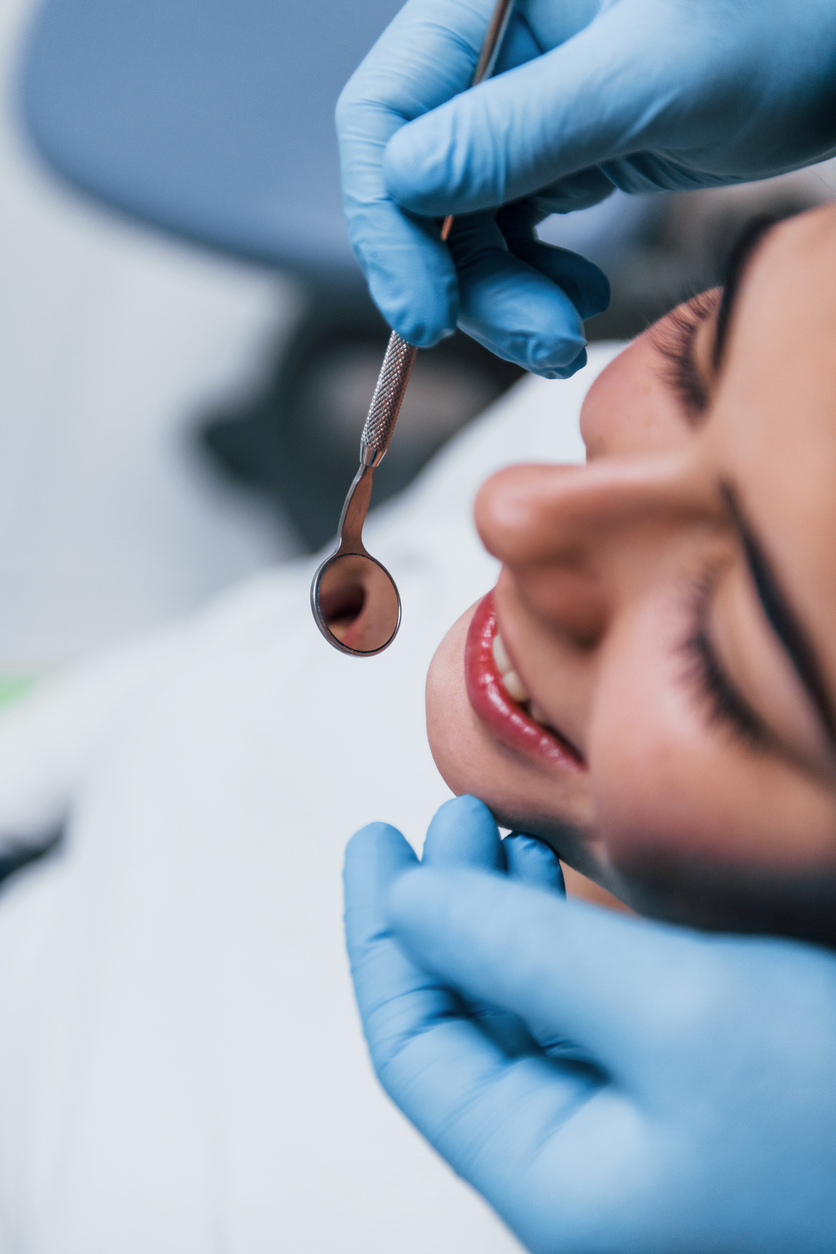Wisdom Teeth
Wisdom teeth often come through much later in life to other adult teeth, causing problems when they do. If there isn’t enough room in the mouth or they are coming through at an odd angle, your dentist may recommend their removal. Fortunately, this procedure is common and there’s no need for concern.
Wisdom teeth usually erupt between the ages of 17 and 25, causing discomfort when they do. Problems can arise if there isn’t the room for them or they come through at odd angles. Misaligned or partially erupted wisdom teeth can cause recurring infections and damage the surrounding teeth and jaw.
The procedure to remove wisdom teeth is common and, in most cases, performed by our experienced dentists at the clinic. Certain more complex cases are referred to a specialist both for your comfort and the best outcome.
Why should I have wisdom teeth removed?
Pain caused by wisdom teeth can occur when there isn’t enough room in the mouth for them, or they come through at an odd angle.
Partially erupted or misaligned wisdom teeth can also lead to recurring infections, which can damage the surrounding jaw and teeth.

Lack of Room in the Mouth

Coming Through at an Odd Angle

Partially Erupted (Causing Infection)


What Are Wisdom Teeth?
Wisdom teeth are located in the back four corners of your mouth. They erupt most often around the ages of 17 to 25, much later than your other adult teeth.
They get their name because we’re usually finishing high school or studying at university when they come through, a time of life when we (supposedly) gain much wisdom.
Wisdom Teeth Complications
Pain caused by wisdom teeth can occur when there isn’t enough room in the mouth for them, or they come through at an odd angle. Partially erupted or misaligned wisdom teeth can also lead to recurring infections, which can damage the surrounding jaw and teeth.
Complications can include:
Tooth pain: Pain around the back of the mouth often heralds the eruption of wisdom teeth. It can be mild and intermittent, persisting for a few days before subsiding. This can happen on and off for a few weeks or even years. If the pain causes eating and talking to be unbearable, please make an appointment with your dentist. The pain could be due to the wisdom teeth pressing against nerves in the mouth.
Redness and swelling: Erupting wisdom teeth can also be heralded by redness and swelling in the gums in the back of the mouth.
Shifting teeth: Wisdom teeth can be bullies. If there isn’t the space for them, they’ll come through anyway, pushing other teeth out of their path and causing misalignment and crookedness. If your dentist thinks your mouth won’t be able to accommodate the arrival of your wisdom teeth, they may advise their removal ahead of time to prevent this issue.
Impacted tooth: On occasion, the jawbone or your other teeth can prevent wisdom teeth from erupting, causing them to be trapped beneath the gum line. This can lead to pain and will need to be seen to by your dentist.
X-rays show any issues with impact teeth ahead of time, and your dentist will normally advise the removal of impacted wisdom teeth before they begin to erupt to prevent any discomfort.
Oral infections: As your wisdom teeth are erupting, bacteria can become trapped in the gum and cause infection. Signs of this include:
- Swelling
- Redness
- Pain
- Tenderness in the jaw
- Bad breath
- A foul taste
Cavities: When food gets trapped around your emerging back molars, cavities can form. They can also form in the teeth in front of your back molars if there isn’t enough room to properly floss and brush. Always ensure you adequately floss and brush thoroughly around erupting wisdom teeth.


How Are Wisdom Teeth Removed?
Wisdom teeth removal is a common procedure, and most cases are taken care of by our experienced dentists at the clinic.
More complex cases are sometimes referred to a specialist to ensure your comfort and the best result. For your convenience, we have a specialist occasionally visit the clinic.
We also understand that any dental procedure can be a stressful prospect for some people. If you’d prefer to have your wisdom teeth removed while you’re asleep, we can assist in arranging this.
Should Wisdom Teeth Be Removed if They Aren’t Causing Problems?
If your wisdom teeth aren’t currently causing any pain or discomfort, they can simply be monitored at your twice yearly check-ups. At these general appointments, our dentists can determine if they are erupting and the likelihood of them causing issues down the track.
Considering they normally erupt when we’re trying to concentrate on studying, it may be a wise option to have your wisdom teeth removed early so they don’t cause problems when you’re hitting the books.
Easy Payment Options
Did you know we have flexible payment options available? You can pay for your weekday and Saturday dental treatment with Zip, Afterpay or National Dental Plan. Dental treatments are important to your overall health, and it’s best to get that toothache sorted as soon as possible. With Zip, Afterpay and National Dental Plan, the benefits include:
Health Fund Friendly
We accept all major private health funds and offer on the spot claiming with HICAPS.
We are proud to be Preferred Providers for the following health funds, meaning our patients have access to the highest rebates possible!









